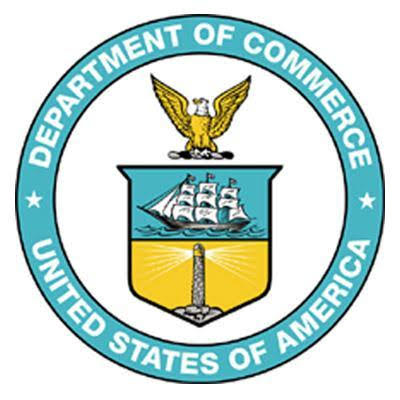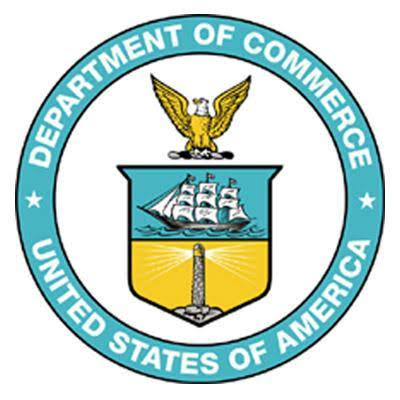We Don’t Need the Department of Commerce

Why do we have a Department of Commerce? Should we have a Department of Commerce? The answer to the first question provides the answer to the second.
First some history. The federal agency began in 1903, during the administration of progressive Republican Theodore Roosevelt, as the Department of Commerce and Labor. The Progressive Era was the product of an intellectual movement that claimed that a government run by alleged experts was wiser than the people.
A decade later, with progressive Democrat Woodrow Wilson in the White House, the Department of Labor was created and the original department had its name shortened. Its best-known secretary, who also had the longest tenure (1921–28), was Herbert Hoover, another progressive, though a Republican, and later the president whose policies foreshadowed the New Deal. According to historian Arthur A. Ekirch Jr., Hoover “proceeded to make the Department of Commerce into a vast agency for the promotion of business interests both at home and abroad.”
Thus the department clashed with the free-market, limited-government view that government should keep its hands off people’s economic activities. Business is quite capable of promoting itself without the help of the taxpayers.
According to the department’s mission statement:
The Department of Commerce promotes job creation and economic growth by ensuring fair and secure trade, providing the data necessary to support commerce, and fostering innovation by setting standards and conducting foundational research and development. Through its 12 bureaus and nearly 47,000 employees located in all 50 states and more than 86 countries, the Department of Commerce works to provide U.S.-based companies and entrepreneurs invaluable tools through programs such as the Decennial Census, the National Weather Service, NOAA fisheries, and the Foreign Commercial Service. Among many other functions, the Department oversees ocean and coastal navigation, helps negotiate bilateral free and fair trade, and enforces laws that ensure a level playing field for American businesses.
To the extent these programs actually provide invaluable tools, they would be provided by profit seekers in the free market. Don’t private firms have an interest in fostering innovation? What do bureaucrats know that entrepreneurs do not? Foundational research and development earn profits in the market, so private interests have a stake in promoting them. Entrepreneurs stand to gain by overcoming any obstacles to organizing such efforts. Moreover, if no one wants to finance a particular project, that’s a signal the taxpayers should not be forced to finance it either, leaving resources for more-worthwhile projects. Why must the department offer grants? Is no entrepreneur willing to provide the capital?
The surest way to promote economic growth is to protect individual rights under the rule of law. As Adam Smith put it, “Little else is requisite to carry a state to the highest degree of opulence from the lowest barbarism, but peace, easy taxes, and a tolerable administration of justice; all the rest being brought about by the natural course of things.”
The department’s mission goes beyond this modest Smithian program. If people are free to trade, they will trade. No government promotion is needed.
And what about jobs? Is creating them a necessary or proper role for government? On its face, it seems not. Our wants are unlimited, while labor and resources are scarce. That means there will always be work to do. And since that’s the case, we need labor and resources to be devoted to the things we want most. That’s what a free-functioning price system accomplishes better than any alternative. Prices and the profit motive guide economic activity to areas with the highest returns, while free competition keeps those returns in line with other areas of production. Consumers are well-served too.
In contrast, when the government tries to create jobs, political and bureaucratic imperatives, not prices, guide decision makers. Corruption, corporate welfare and cronyism intrude as politicians seek political support and bureaucrats fall to regulatory capture.
A further problem with government promotion of jobs is that bureaucrats tend to resist job elimination. The Trump administration bemoans the loss of manufacturing jobs during previous administrations. But fretting about job elimination overlooks an important point. In a world of scarce labor and unlimited consumer wants, we need jobs to be eliminated because that is how labor is freed for projects we couldn’t afford previously. When robots started doing assembly-line work, human beings could devote their efforts to jobs that couldn’t be done before. Thus consumer welfare requires the elimination of jobs. Without it, people cannot enjoy rising living standards. Bureaucratic conservatism tends to mean preserving the existing jobs that interest groups lobby to protect. Who will lobby for jobs that don’t yet exist?
If the market is free, we need not fear mass unemployment, which is a feature of recessions generated by reckless central-bank monetary policy.
We don’t need the Department of Commerce. Let business fend for itself, competitively serving consumers rather than lobbying for government privileges.










